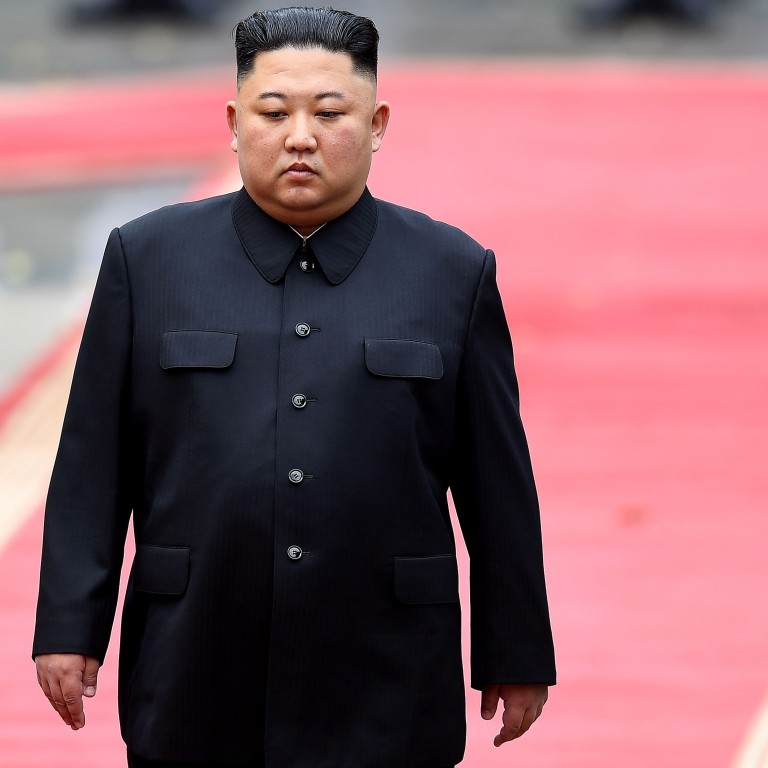
Review | The Great Successor: Kim Jong-un biography follows North Korean leader from awkward teen to elusive dictator
- Anna Fifield digs deep into the dictator’s early life, speaking with former classmates and others
- She paints picture of a calculated and ruthless ruler whom many dismissed when he first succeeded his late father
The Great Successor: The Divinely Perfect Destiny of Brilliant Comrade Kim Jong-un by Anna Fifield, pub. Hachette. 4/5 stars
As Washington Post journalist Anna Fifield writes in The Great Successor: The Divinely Perfect Destiny of Brilliant Comrade Kim Jong-un, an ambitious biography, the North Korean leader has spent most of his life behind the curtain of the world’s most secretive regime. He only came to wide attention in 2009, when, at the age of 25, he was formally introduced to the country’s elite as his father’s successor.

Kim grew up in walled compounds behind five-metre-high iron gates, with enormous playrooms filled with “more toys than any European toy store”, soundproofed cinemas and kitchens loaded with French pastries, smoked salmon and pâté. This at a time when many North Koreans were starving. There were gardens “so large that they called them parks, with artificial waterfalls running into artificial lakes”.
Yet, as Fifield writes, it was a lonely childhood; Jong-un’s eighth birthday party was attended by high-level officials rather than other children.
He was sent to Switzerland to study at the International School of Bern, “a private, English-language school attended by the children of diplomats and other expats in the Swiss capital”, and then at a German-language school in nearby Liebefeld. Fifield tracks down former classmates and others who knew Jong-un when he struggled with languages and social interaction.
She conducted hundreds of hours of interviews across eight countries, often with people who had fled the repressive regime. “What I learned did not bode well for the 25 million people still trapped inside North Korea,” she writes.
After his father, Kim Jong-il, died in 2011, Korea-watchers were sceptical of the younger Kim, with some predicting the regime would collapse within months, “if not weeks”. Many believed it could not survive a third generation of totalitarian dynasty, much less “a twenty-something who’d been educated at fancy European schools […] a young man with no known military or government background”.
Yet Kim has proven to be both calculating and ruthless. While North Korea has not embarked on any grand economic opening up, Kim has allowed minor acts of private enterprise that have, in small ways, improved lives: South Korean intelligence estimates at least 40 per cent of the population now make money through their own endeavours, while the number of government-approved markets has more than doubled to over 400.

Kim Jong-un is widely believed to have been behind the attack. In the book, Kim Jong-nam is portrayed as an intelligent misfit who never quite belonged in the secretive country where he was born, unlike his younger brother.
Xi promises to help North Korean denuclearisation process
We also get a rare glimpse into the lives of the elite, in particular millennials, “the people of his generation, who, if they felt they were flourishing under [Kim’s] leadership, could potentially keep him in power for decades to come”.
These people frequent Italian restaurants and sushi bars in Pyongyang, pubs selling craft beer, and amusement parks with roller coasters. “Today, Kim Jong-un’s cabal can shoot pool and sing karaoke. They can take yoga classes and drink cappuccinos with cute animal faces drawn into the foam. They can text on their smartphones and swing Christian Dior or Gucci purses,” Fifield writes.

The author interviews Kang Nara, the daughter of a North Korean businessman who was involved in construction before he defected. Kang describes growing up in Chongjin, the third-largest city in North Korea, with a monthly allowance of US$400, which is about 100 times the salary of a state factory worker. She says she was dismissive of boys who didn’t own expensive smartphones and wear imported clothes.
We also hear about the outlandish claims made by the country’s propagandists: such as how, aged three, Kim could shoot a gun and hit a light bulb from 100 metres away, and that, by the time he was eight, he could “not only drive a truck, but he could drive it at 80 miles an hour”.
Kim regime won’t last beyond 20 years, predicts North Korean defector
High schools in North Korea were required to teach a course devoted to the new leader – the curriculum amounted to 81 hours of lessons on Kim, in addition to those focused on his father, grandfather and grandmother.

Kim has embraced other aspects of military strength. Under his rule, the country has nurtured an army of cyber warriors who have not only hacked the country’s enemies but also earned much needed funds. According to South Korean officials, their country is hit by about 1.5 million North Korean hacking attacks every day.
The Great Successor is an impressive achievement and an absorbing read. Above all, the book makes it clear that everything Kim has done since his first days in power has been “carefully calculated to help him achieve his only goal: to remain, as his image makers put it, the Ever-Victorious, Iron-Willed Commander of North Korea”.
That is a worrying thought.
